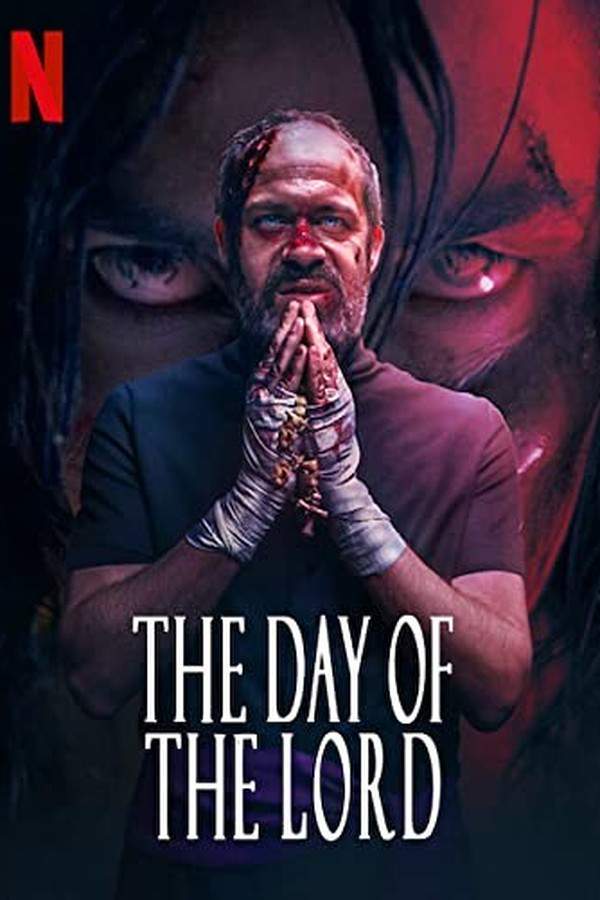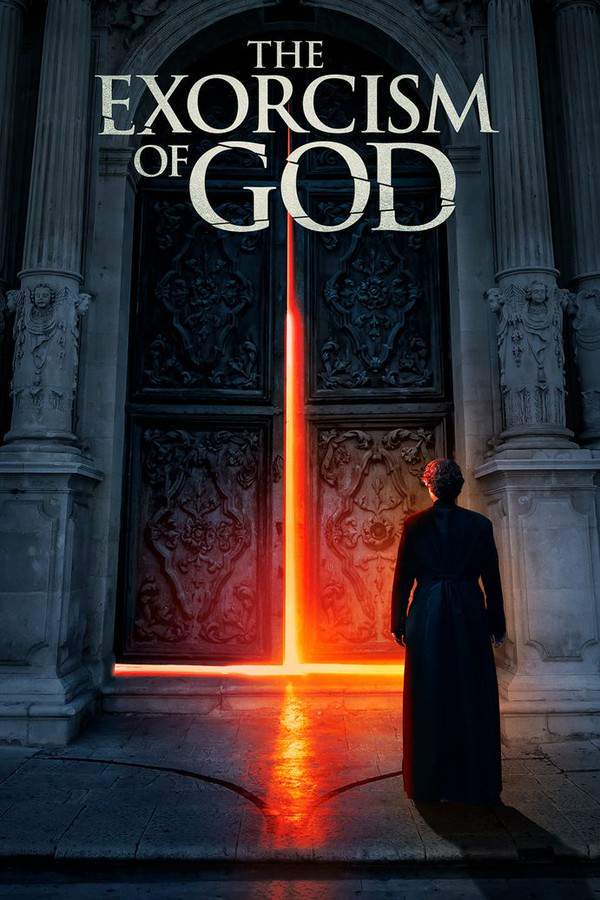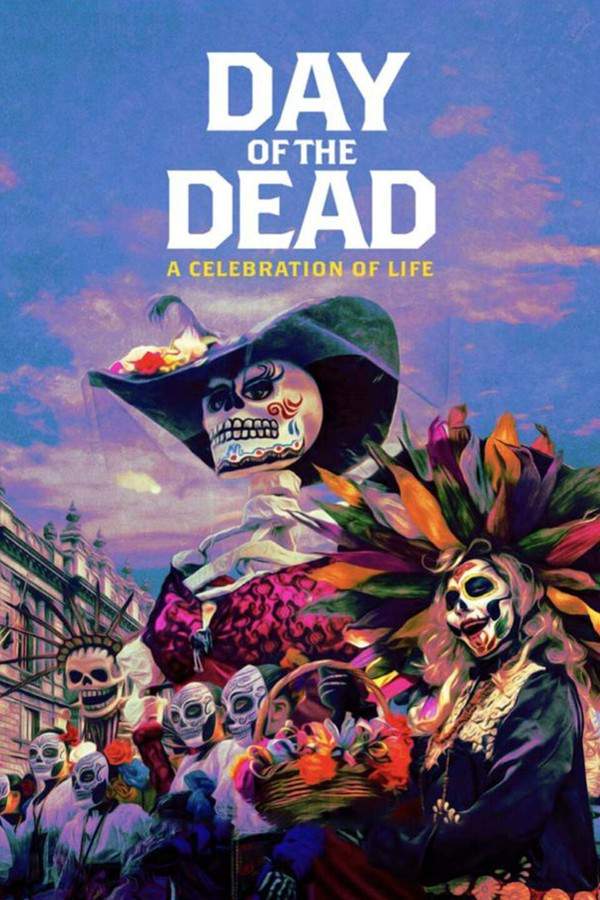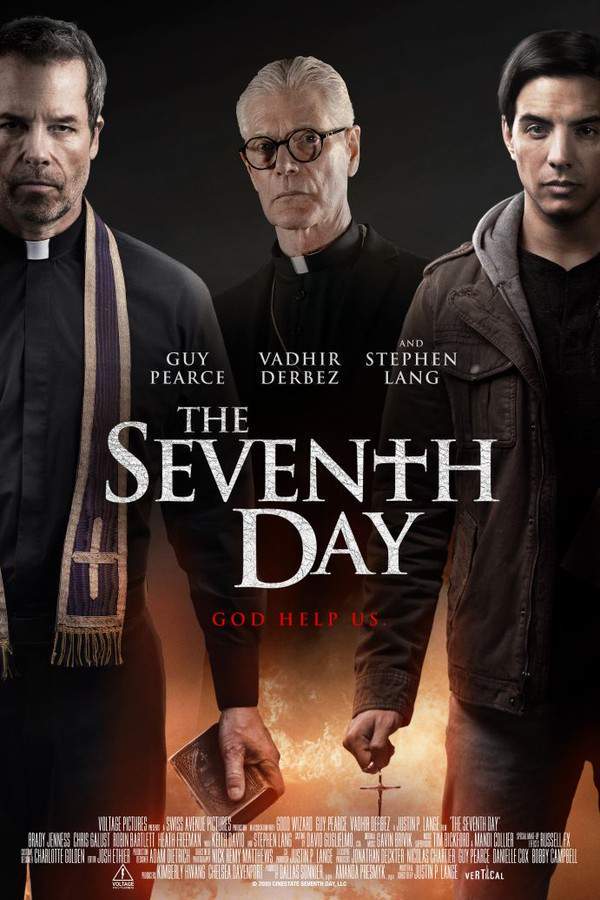
The Day of the Lord 2020
Directed by

Santiago Alvarado Ilarri
Made by

Netflix
Test your knowledge of The Day of the Lord with our quiz!
The Day of the Lord Plot Summary
Read the complete plot summary and ending explained for The Day of the Lord (2020). From turning points to emotional moments, uncover what really happened and why it matters.
A former Catholic priest named Menéndez finds himself released from prison and assigned to a new residence, grappling with the heavy burden of his past. His incarceration followed a traumatic incident during an exorcism that led to the tragic death of a boy. Plagued by guilt, Menéndez is frequently tormented by dreams featuring both the boy and his mother, Marisa, for whom he harbors complicated feelings. As Marisa visits him regularly, she proves to be a source of comfort, devoid of any blame towards him for her son’s demise, often tidying up his home in a nurturing gesture.
Amidst his turmoil, a friend from prison, Sebas, reaches out for help, convinced that his daughter Raquel may be under demonic possession. Initially hesitant, Menéndez ultimately agrees to meet this rebellious young woman. Raquel vehemently denies her father’s claims, indulging in taunts that provoke varying responses from the conflicted priest—half of him drawn to her audacity while the other recoils in disapproval. Throughout these encounters, Menéndez often converses on the phone with a mysterious caller, addressing them as if they are God, further challenging his wavering faith.
As he starts to believe in Raquel’s possession, Menéndez invites Sebas to join him in a desperate attempt to perform an exorcism. Their methods quickly spiral into darkness as they resort to torturing Raquel to extract the demon’s identity. When their efforts reach a breaking point, Sebas collapses into despair, embracing his daughter and apologizing for their actions, catalyzing the demon’s dramatic manifestation. The creature overwhelms both men, binding them as it confronts a heartbroken Sebas.
In a frenzied turn of events, Menéndez escapes, and they manage to restrain Raquel once more. With heightened determination, the duo perseveres in their exorcism, successfully forcing the demon into a physical form. Menéndez discovers with horror that it mirrors the entity that once tormented Marisa’s son. Utilizing a makeshift cross, he finally conquers the demonic force, which flees in defeat. As a grateful Sebas and Raquel depart, Menéndez, covered in blood, relays his triumph to the enigmatic caller. Yet, as the phone ominously reveals itself to be disconnected, a ghostly, nun-like figure glides toward a satisfied Menéndez, leaving his fate uncertain.
The Day of the Lord Timeline
Follow the complete movie timeline of The Day of the Lord (2020) with every major event in chronological order. Great for understanding complex plots and story progression.
Release from Prison
Former Catholic priest Menéndez is released from prison after serving time for his past actions. His experience has left him heavy with guilt and memories that haunt him daily.
Haunted by the Past
Menéndez is plagued by dreams of a boy who died during an exorcism while under his care. He also frequently dreams of the boy's mother, Marisa, as he grapples with his complicated feelings toward her.
Support from Marisa
Marisa visits Menéndez regularly and provides him with emotional support, despite the tragic past. Her visits serve as a reminder of his guilt but also offer moments of comfort without blame.
Sebas' Plea for Help
A friend from prison, Sebas, reaches out to Menéndez, convinced that his daughter Raquel may be possessed. Though hesitant, Menéndez ultimately agrees to meet Raquel, finding himself drawn into her turbulent life.
Encounter with Raquel
Upon meeting, Raquel adamantly denies her father's claims of possession, engaging in provocative banter with Menéndez. He finds himself torn between attraction to her rebellious spirit and his disapproval of her actions.
Divine Conversations
In a series of unsettling phone calls, Menéndez appears to engage with a mysterious caller whom he addresses as God. These conversations challenge his faith and force him to confront his inner demons.
Belief in Possession
As Menéndez continues to interact with Raquel, he begins to consider the possibility of her possession. This shift in belief leads him to invite Sebas to assist in confronting the spiritual crisis together.
Attempted Exorcism
Menéndez and Sebas embark on a desperate attempt to perform an exorcism on Raquel. Their methods quickly become extreme, veering into dark territories as they resort to torturing her for information.
Sebas' Despair
During the exorcism, Sebas succumbs to despair, embracing Raquel and apologizing for their cruel actions. This moment of vulnerability somehow triggers a dramatic manifestation of the demon within Raquel.
Restrain and Escape
In the chaos that ensues, Menéndez manages to escape momentarily while Raquel is restrained again. This escape signifies a turning point as they prepare for a renewed effort in their exorcism.
Confrontation with the Demon
As they continue the exorcism, Menéndez and Sebas force the demon to manifest physically. To Menéndez's horror, the entity mirrors the boy who had died in the earlier exorcism, deepening his traumas.
Victory Over Darkness
Using a makeshift cross, Menéndez confronts the manifestation of the demon. With a fierce resolve, he ultimately manages to defeat it, leading to a significant moment of triumph in the climax of their struggle.
Departure of Sebas and Raquel
With the demon defeated, a grateful Sebas and Raquel leave Menéndez, expressing their gratitude for his help. Despite this victory, the shadows of Menéndez's past continue to linger over him.
Unsettling Revelation
After the exorcism, Menéndez reports his triumph during a call to the mysterious figure. However, he is confronted with the unsettling reality that the phone line is dead, leaving him in a state of uncertainty.
Final Haunting
As Menéndez relays his victory, a ghost-like, nun figure glides towards him. This chilling apparition leaves his fate ambiguous, suggesting that the battle between light and dark may not yet be over.
The Day of the Lord Characters
Explore all characters from The Day of the Lord (2020). Get detailed profiles with their roles, arcs, and key relationships explained.
Menéndez (Juli Fàbregas)
Menéndez is a former priest tormented by his past mistakes, particularly the death of a young boy during an exorcism. His character is marked by a struggle between his fading faith and the desire for redemption as he faces the demons of both the spiritual and personal kind.
Marisa (Dolores Heredia)
Marisa serves as a source of comfort and emotional support for Menéndez, embodying compassion despite her tragic loss. Her nurturing presence juxtaposes the chaos of Menéndez's life and showcases her strength derived from forgiveness and understanding.
Sebas (Hector Illanes)
Sebas is a friend from prison who reaches out to Menéndez, believing his daughter may be possessed. His desperation and emotional turmoil drive the narrative forward, leading to darker paths as their exorcism attempts spiral out of control.
Raquel (Ximena Romo)
Raquel, portrayed as rebellious and defiant, challenges Menéndez's authority and beliefs. Her interactions reveal her struggle against perceived possession, offering layers to her character as both a victim and a resilient spirit.
The Day of the Lord Settings
Learn where and when The Day of the Lord (2020) takes place. Explore the film’s settings, era, and how they shape the narrative.
Time period
The film does not specify a particular historical era, focusing instead on the contemporary struggles of the characters. The themes of guilt, redemption, and faith highlight personal and moral dilemmas that resonate across time.
Location
Prison, Men's residence
The movie unfolds in the contrasting settings of a prison and Menéndez's new place of residence. The prison symbolizes the consequences of Menéndez's past actions, while his residence becomes a place of turmoil and confrontation with his inner demons, as well as interactions with significant characters like Marisa and Sebas.
The Day of the Lord Themes
Discover the main themes in The Day of the Lord (2020). Analyze the deeper meanings, emotional layers, and social commentary behind the film.
😇
Guilt and Redemption
Menéndez grapples with overwhelming guilt stemming from his past, particularly the death of a boy during an exorcism. This theme is intricately linked to his ongoing quest for redemption, as he seeks to confront both his guilt and the demonic forces that reflect his inner turmoil.
👻
Possession
The theme of demonic possession is pivotal to the narrative, as Raquel's alleged possession leads Menéndez to question his beliefs and morality. The struggle against the demon showcases the complexities of faith and the lengths one might go to rescue a loved one from evil.
💔
Love and Loss
Menéndez's relationship with Marisa embodies a profound connection rooted in shared tragedy. Their interactions highlight themes of love, compassion, and the haunting nature of loss as both characters navigate the painful memories of the past.

Coming soon on iOS and Android
The Plot Explained Mobile App
From blockbusters to hidden gems — dive into movie stories anytime, anywhere. Save your favorites, discover plots faster, and never miss a twist again.
Sign up to be the first to know when we launch. Your email stays private — always.
The Day of the Lord Spoiler-Free Summary
Discover the spoiler-free summary of The Day of the Lord (2020). Get a concise overview without any spoilers.
In a world where quiet streets hide simmering doubts, the film opens on a bleak, rain‑slicked town that feels both ordinary and unsettling. Churches stand as silent witnesses to whispered prayers, while the air is thick with an unspoken tension that hints at forces beyond the everyday. The cinematography leans into shadowed interiors and stark, natural light, lending the setting a reverent yet oppressive atmosphere that mirrors the inner turmoil of its inhabitants.
At the heart of the story is a desperate, troubled parent—the father—who carries the weight of an unspoken crisis and clings to the faint hope of redemption. He seeks out a once‑revered cleric, Menéndez, now living in exile from the very faith that once defined him. Menéndez is a man haunted by memories he cannot escape, his former priestly conviction eroded by grief and guilt. Their meeting is less a simple consultation than a collision of two wounded souls, each searching for a glimmer of salvation while wrestling with the darkness that has settled over their lives.
As the two navigate a fragile alliance, the film swells with a mood that oscillates between solemn contemplation and creeping dread. The narrative never spells out the source of the looming threat; instead, it lets whispered rumors, unsettling dreams, and a lingering sense of the uncanny guide the audience’s imagination. Faith becomes a fragile thread, hope a flickering candle, and the unknown a palpable presence that blurs the line between spiritual despair and something far more sinister. In this tense, atmospheric drama, every quiet moment feels charged, leaving viewers poised on the edge of a mystery that refuses to be fully illuminated.
Can’t find your movie? Request a summary here.
Movies with Similar Twists and Themes
Uncover films that echo the narrative beats, emotional arcs, or dramatic twists of the one you're exploring. These recommendations are handpicked based on story depth, thematic resonance, and spoiler-worthy moments — perfect for fans who crave more of the same intrigue.
Featured on this page

What's After the Movie?
Not sure whether to stay after the credits? Find out!
Explore Our Movie Platform
New Movie Releases (2025)
Famous Movie Actors
Top Film Production Studios
Movie Plot Summaries & Endings
Major Movie Awards & Winners
Best Concert Films & Music Documentaries
Movie Collections and Curated Lists
© 2025 What's After the Movie. All rights reserved.












